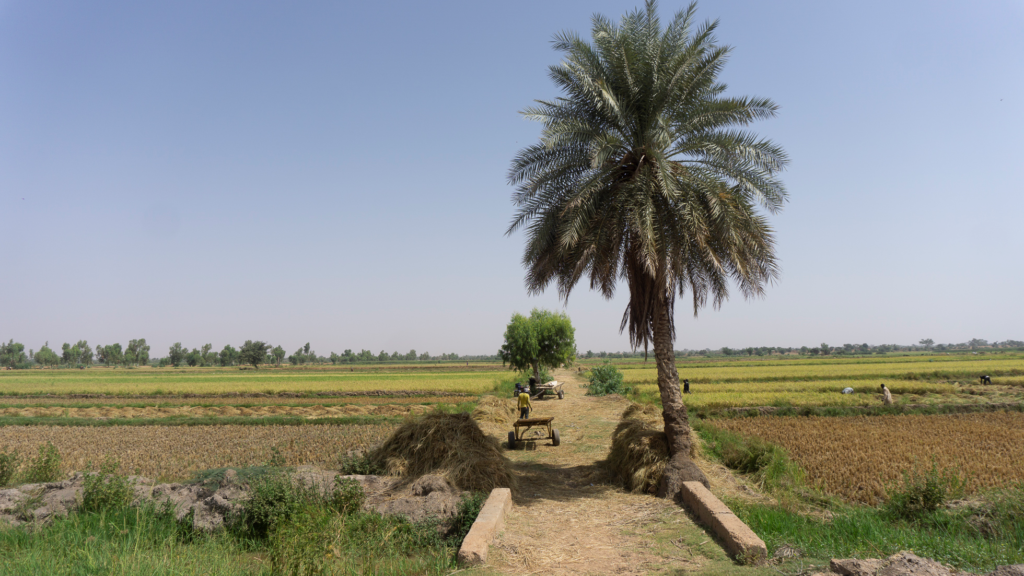Located in West Africa, in the Sahel region, Mali and the Gambia are amongst the most vulnerable regions worldwide that would be affected by impacts of climate change, thus intensifying current challenges such as droughts, floods and heat waves. Inadequate access to affordable energy is also limiting social opportunities for the poor; women and youth. Additionally, most of the procedures used to obtain and consume water are not clearly defined, which leads to over-exploitation and bad practices thus impacting on food production.
The “Agrophotovoltaics for Mali and The Gambia: Sustainable Electricity Production by Integrated Food, Energy and Water Systems” (APV-MaGa) project aims at establishing Agrophotovoltaics as a sustainable energy system that provides food, water and electricity to the local population while increasing resilience of the agriculture sector against climate change. Additionally, the project seeks to proof the technical and economic viability of an integrated triple land use system and to gain a deeper understanding of synergies and interactions within the Water-Energy-Food Nexus in the partner countries and West African context. This approach also integrates different water management systems, such as rainwater harvesting, groundwater extraction, inter-seasonal water storage for irrigation purposes and enhanced by smart technology, e.g. the Internet of Things, all within the APV systems.
In APV systems, photovoltaic modules are elevated allowing for continued agricultural activities and providing the additional benefit of shelter for crops below. Furthermore, integrating a business concept for small- and medium-sized farms and developing an investment strategy aims to refund the investment. As per demand from the African partners, five APV approaches will be exploited and suitable business models related to the local context will be tested. Aiming at a strong participation of farmers and smallholders, the five APV demonstrators in both Mali and the Gambia will also act as showcases that promote long-term investment, which permits the rural population to become stakeholders and owners of an APV system capable of producing food, electricity and water. The APV approaches include: A 200kWp demonstrator to be installed on approximately one hectare of land reserved for research activities at the Rural Polytechnic Institute of Training and Applied Research (IPR/IFRA) in Katibougou, Mali; and four APV pilot demonstrators (which include an irrigated rice farm, an integrated rainwater harvesting APV pilot plant, a transformation platform and a cold storage facility for agricultural products) with a capacity of approximate 62.5kWp each to be installed in selected communities in The Gambia. The different pilot projects are installed to optimize the use of the generated electricity and to ensure profitability from crop yields for the local communities.
The project is led by the Pan African Cooperation and Educational Technologies (PACET) Programme at United Nations University – Institute for Environment and Human Security (UNU-EHS). The project consortium is comprised of partners in Germany – Fraunhofer Institute for Solar Energy Systems, Freiburg; deea Solutions GmbH, Frankfurt am Main; University of Freiburg – and in Mali and The Gambia: Rural Polytechnic Institute of Training and Applied Research of Katibougou, Malian Awakening Association for Sustainable Development, West African Science Service Center on Climate Change and Adapted Land Use in both The Gambia and Mali, Food and Agriculture Organization of the United Nations Technical Office (FAO Gambia), National Agricultural Research Institute, Janta.Bi (Nadji.Bi) Ltd Gambia, University of The Gambia (UTG), Ministry of Secondary, Higher Education and Scientific Research (MESSRS) Mali (Associate Partner), Ministry of Higher Education, Research, Science and Technology, The Gambia (MoHERST) (Associate Partner) and Namene Solar Ltd Ghana (Associate Partner). The project is funded by the German Federal Ministry of Education and Research (BMBF) under the funding measure “CLIENT II – International Partnerships for Sustainable Innovations” as a part of the Framework Programme “Research for Sustainable Development” (FONA3). With a duration of three years, the project officially started in August 2020.

